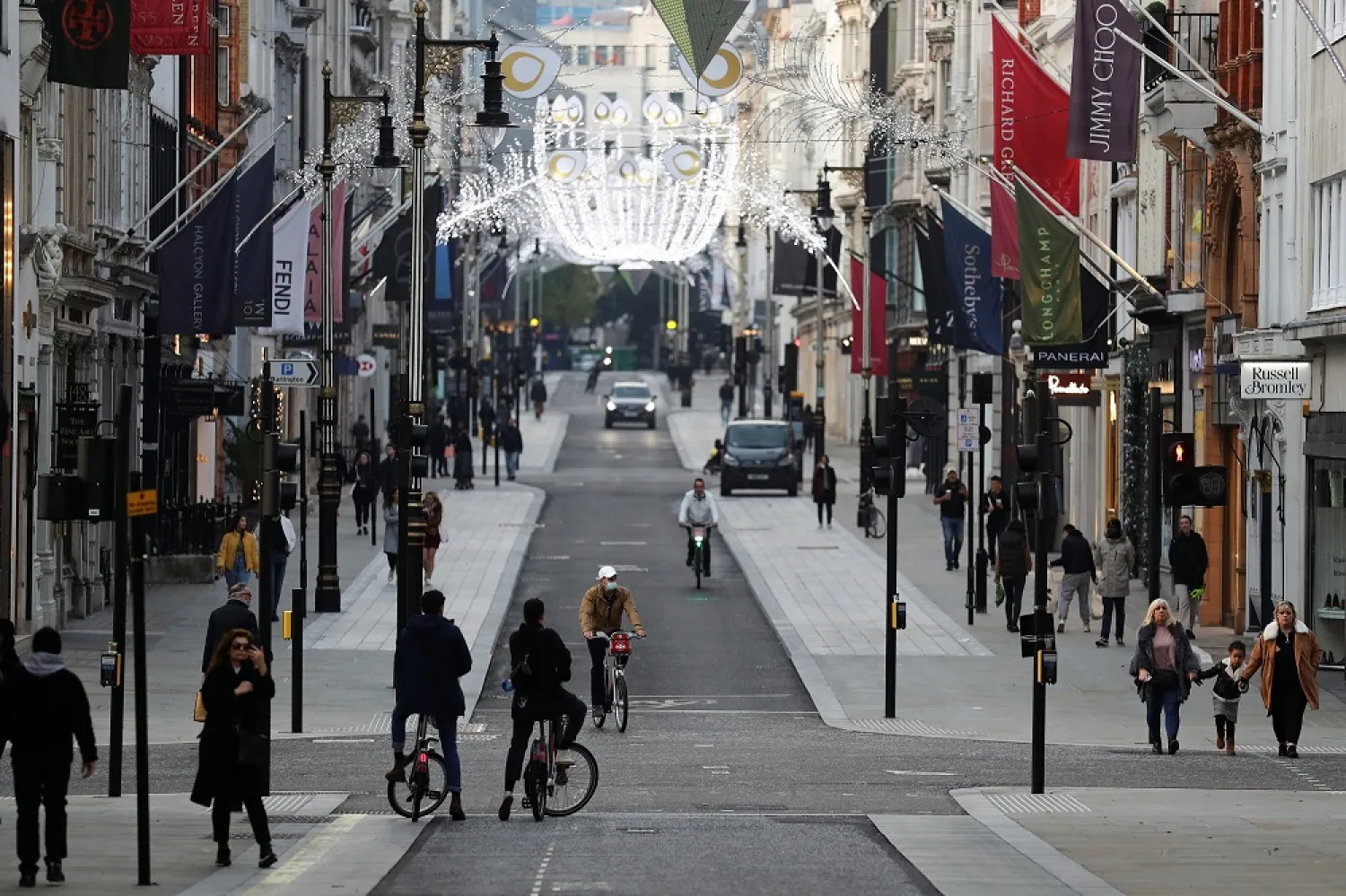With major COVID-19 vaccines showing high levels of protection, British officials are cautiously — and they stress cautiously — optimistic that life may start returning to normal by early April.
Even before regulators have approved a single vaccine, the UK and countries across Europe are moving quickly to organize the distribution and delivery systems needed to inoculate millions of citizens.
“If we can roll it out at a good lick … then with a favorable wind, this is entirely hypothetical, but we should be able to inoculate, I believe on the evidence I’m seeing, the vast majority of the people who need the most protection by Easter,” Prime Minister Boris Johnson said Monday after vaccine makers in recent weeks have announced encouraging results. “That will make a very substantial change to where we are at the moment.”
The UK has recorded more than 55,000 deaths linked to COVID-19, the deadliest outbreak in Europe. The pandemic has prevented families from meeting, put 750,000 people out of work and devastated businesses that were forced to shut as authorities tried to control the spread. England’s second national lockdown will end Dec. 2, but many restrictions will remain in place.
The British government has agreed to purchase up to 355 million doses of vaccine from seven different producers, as it prepares to vaccinate as many of the country's 67 million people as possible. Governments around the world are making agreements with multiple developers to ensure they lock in delivery of the products that are ultimately approved by regulators.
The National Health Service is making plans to administer 88.5 million vaccine doses throughout England, according to a planning document dated Nov. 13. Scotland, Wales and Northern Ireland are developing their own plans under the UK's system of devolved administration.
The first to be vaccinated would be health care workers and nursing home residents, followed by older people, starting with those over 80, according to the document, first reported by the London-based Health Service Journal. People under 65 with underlying medical conditions would be next, then healthy people 50 to 65 and finally everyone else 18 and over.
While most of the injections would be delivered at around 1,000 community vaccination centers, about a third would go to 40 to 50 “large-scale mass vaccination centers,” including stadiums, conference centers and similar venues, the document indicates.
The NHS confirmed the document was genuine but said details and target dates are always changing because the vaccination program is a work in progress.
Professor Mark Jit, an expert in vaccine epidemiology at the London School of Hygiene & Tropical Medicine, said Britain has the advantage of having a well-developed medical infrastructure that can be used to deliver the vaccine.
But this effort will be unlike standard vaccination programs that target individuals one at a time.
“The challenge now is to deliver the biggest vaccine program in living memory in the UK and other countries around the world,” Jit said. “We’re not vaccinating just children or pregnant women like many other vaccination programs.... We’re trying to vaccinate the entire UK population. And we’re trying to do it very quickly.’’
Other European countries are also getting ready, as are the companies that will be crucial to the rollout.
For example, Germany’s Binder, which makes specialized cooling equipment for laboratories, has ramped up production of refrigerated containers needed to transport some of the vaccines under development. Binder is producing a unit that will reach the ultra-cold temperatures needed to ship the Pfizer vaccine.
The German government has asked regional authorities to get special vaccination centers ready by mid-December. France, meanwhile, has reserved 90 million vaccine doses, but has not yet laid out its plan for mass vaccination. A government spokesman said last week that authorities were working to identify locations for vaccination centers, choose companies to transport vaccines and set the rules for shipping and storage.
In Spain, health workers will get priority, as will residents of elder care homes. Spain hopes to vaccinate some 2.5 million people in the first stage between January and March and have most of the vulnerable population covered by mid-year. The vaccinations will be administered in 13,000 public health centers.
But sticking syringes in people's arms is just the last part of the enormous logistical challenge the worldwide mass vaccination campaign will pose.
First, drugmakers must ramp up production, so there is enough supply to vaccinate billions of people in a matter of months. Then they have to overcome distribution hurdles such as storing some of the products at minus-70 degrees Celsius (minus-94 Fahrenheit). Finally, they will need to manage complex supply chains reminiscent of the just-in-time delivery systems carmakers use to keep their factories humming.
“It will be the challenge of the century, basically, because of the volumes and everything else which are going to be involved ...,'' said Richard Wilding, a professor of supply chain strategy at Cranfield School of Management. “It’s just the absolute scale.''
Vaccines from three drugmakers are considered leading candidates. Pfizer and Moderna have released preliminary data showing their vaccines were about 95% effective. AstraZeneca on Monday reported interim results of its vaccine developed with Oxford researchers that were also encouraging. Dozens of other vaccines are under development, including projects in China and Russia.
Britain and other Northern Hemisphere countries may also get a boost from the weather, said Chris Whitty, England’s chief medical officer. Transmission of respiratory viruses generally slows during the warmer months.
“The virus will not disappear, but it will become less and less risky for society.”
But Johnson, who credited NHS nurses with saving his life after he was hospitalized with COVID-19 earlier this year, warned restrictions will continue for months and Christmas celebrations will be curtailed this year.
“We can hear the drumming hooves of the cavalry coming over the brow of the hill, but they are not here yet,” Johnson said.









